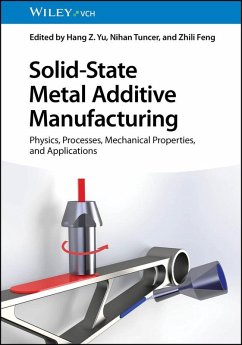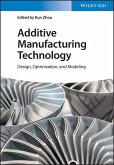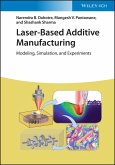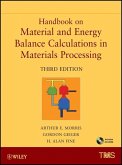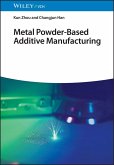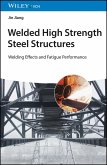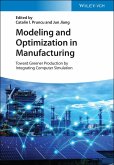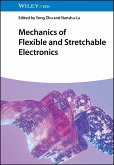Solid-State Metal Additive Manufacturing
Timely summary of state-of-the-art solid-state metal 3D printing technologies, focusing on fundamental processing science and industrial applications
Solid-State Metal Additive Manufacturing: Physics, Processes, Mechanical Properties, and Applications provides detailed and in-depth discussion on different solid-state metal additive manufacturing processes and applications, presenting associated methods, mechanisms and models, and unique benefits, as well as a detailed comparison to traditional fusion-based metal additive manufacturing.
The text begins with a high-level overview of solid-state metal additive manufacturing with an emphasis on its position within the metal additive manufacturing spectrum and its potential for meeting specific demands in the aerospace, automotive, and defense industries. Next, each of the four categories of solid-state additive technologies-cold spray additive manufacturing, additive friction stir deposition, ultrasonic additive manufacturing, and sintering-based processes-is discussed in depth, reviewing advances in processing science, metallurgical science, and innovative applications. Finally, the future directions of these solid-state processes, especially the material innovation and artificial intelligence aspects, are discussed.
Sample topics covered in Solid-State Metal Additive Manufacturing include:
Solid-State Metal Additive Manufacturing is an essential reference on the subject for academic researchers in materials science, mechanical, and biomedicine, as well as professional engineers in various manufacturing industries, especially those involved in building new additive technologies.
Timely summary of state-of-the-art solid-state metal 3D printing technologies, focusing on fundamental processing science and industrial applications
Solid-State Metal Additive Manufacturing: Physics, Processes, Mechanical Properties, and Applications provides detailed and in-depth discussion on different solid-state metal additive manufacturing processes and applications, presenting associated methods, mechanisms and models, and unique benefits, as well as a detailed comparison to traditional fusion-based metal additive manufacturing.
The text begins with a high-level overview of solid-state metal additive manufacturing with an emphasis on its position within the metal additive manufacturing spectrum and its potential for meeting specific demands in the aerospace, automotive, and defense industries. Next, each of the four categories of solid-state additive technologies-cold spray additive manufacturing, additive friction stir deposition, ultrasonic additive manufacturing, and sintering-based processes-is discussed in depth, reviewing advances in processing science, metallurgical science, and innovative applications. Finally, the future directions of these solid-state processes, especially the material innovation and artificial intelligence aspects, are discussed.
Sample topics covered in Solid-State Metal Additive Manufacturing include:
- Physical processes and bonding mechanisms in impact-induced bonding and microstructures and microstructural evolution in cold sprayed materials
- Process fundamentals, dynamic microstructure evolution, and potential industrial applications of additive friction stir deposition
- Microstructural and mechanical characterization and industrial applications of ultrasonic additive manufacturing
- Principles of solid-state sintering, binder jetting-based metal printing, and sintering-based metal additive manufacturing methods for magnetic materials
- Critical issues inherent to melting and solidification, such as porosity, high residual stress, cast microstructure, anisotropic mechanical properties, and hot cracking
Solid-State Metal Additive Manufacturing is an essential reference on the subject for academic researchers in materials science, mechanical, and biomedicine, as well as professional engineers in various manufacturing industries, especially those involved in building new additive technologies.
Dieser Download kann aus rechtlichen Gründen nur mit Rechnungsadresse in D ausgeliefert werden.

